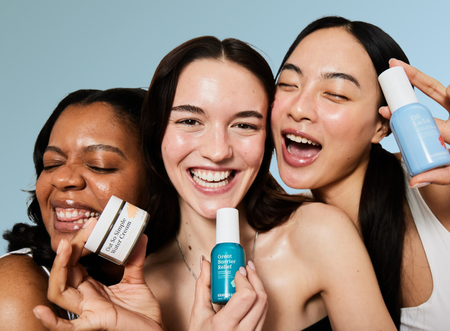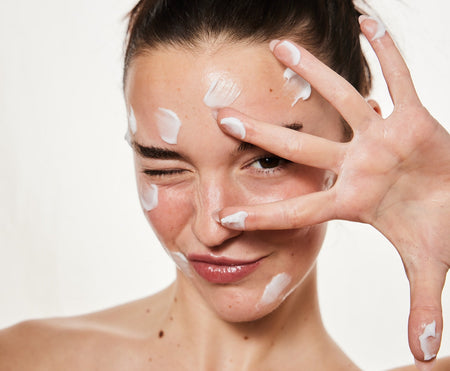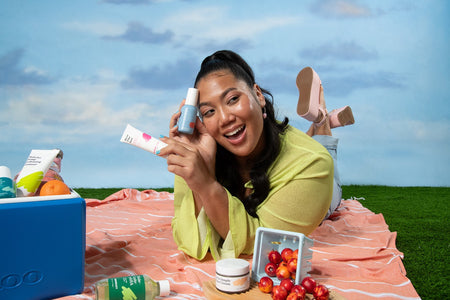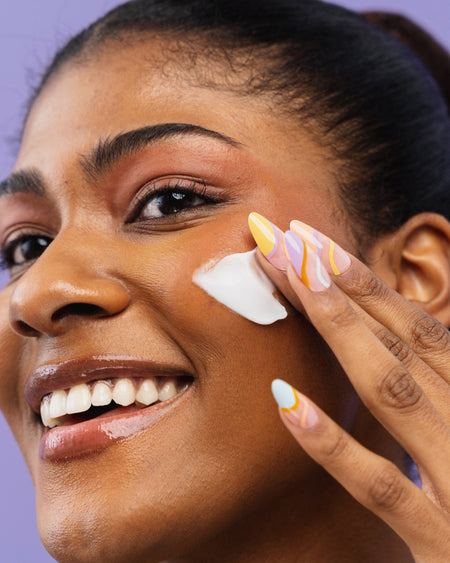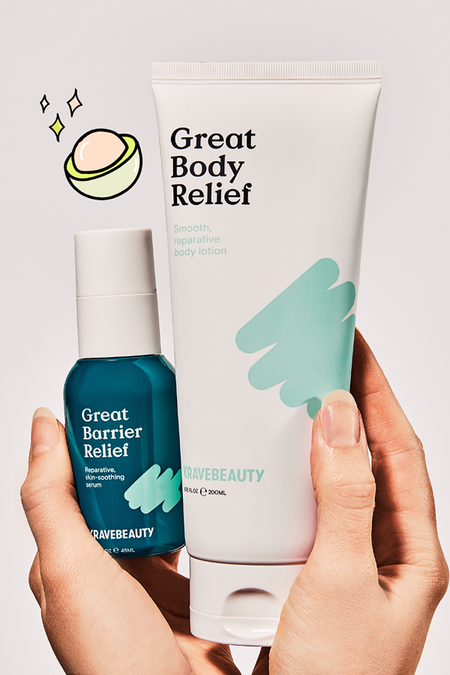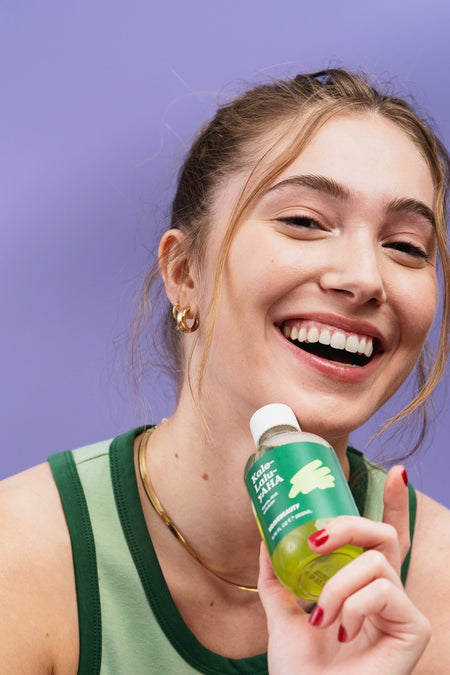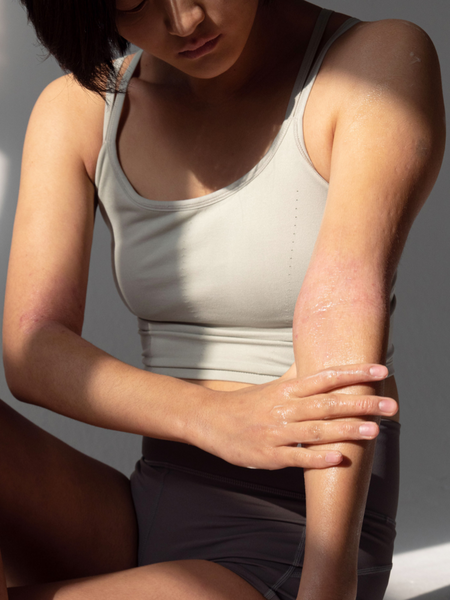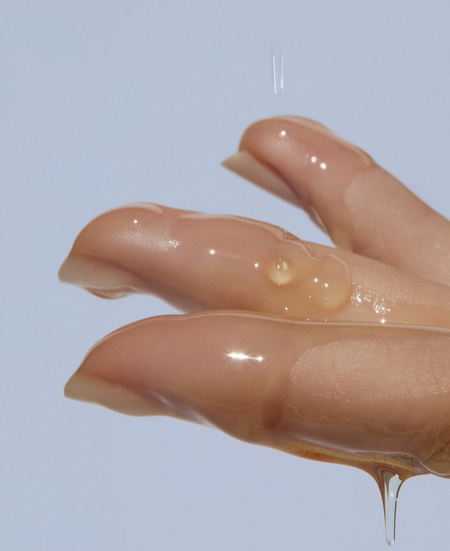Acne Skincare Ingredients 101: All you need to know about best acne-fighting ingredients

We all know that shopping for acne skincare products can be a little tricky! There are just so many products and treatments out there, so it can be hard to know where to start.
But no worries we’ve got your back! Here’s a quick guide to help you navigate this sea of acne treatments to determine which one might work for you:
-
Your Dermatologist’s Favorite: Benzoyl Peroxide
How Does It Work?
This ingredient is crazy effective in preventing the growth of acne-causing bacteria
(P. Acnes). When applying a benzoyl peroxide treatment it immediately breaks down into benzoic acid and oxygen, killing the white blood cells that cause the inflammatory response.
I know what you’re thinking... how does oxygen kill bacteria? Also, aren’t white blood cells the good ones?
Bacteria can thrive in an oxygen-less environment, so when your pores are clogged they can flourish. This is when your white blood cells save the day to fight this bacteria, but this causes an inflammatory response aka. acne!
TL;DR the oxidizing action of benzoyl peroxide is what destroys the bacteria and is anti-inflammatory!
How To Use It?
There are tons of treatments that contain benzoyl peroxide with a concentration ranging from 2.5-10%. We recommend starting with a lower percentage because it could easily irritate and dry your skin. Benzoyl Peroxide is best for inflammatory acne, but just make sure you only use it on the spots you experience acne!
-
The Secret Agent: Salicylic Acid (BHA)
How Does It Work?
Salicylic Acid is a pore cleaning exfoliant that is derived from Willow Bark Tree or nowadays created synthetically! BHA is oil soluble so it has the ability to get down and dirty into the pores to clean out all the gunk. It’s known to also have an anti-inflammatory effect.
Salicylic Acid also acts as a keratolytic agent which allows the scaly, thickened plaques of your skin to shed more easily. Since it is a chemical exfoliator it increases cell turnover, refreshes the skin and helps kill the bacteria.
How To Use It?
In your conventional skincare products you’ll usually find a maximum concentration of 2%! With this low percentage, you may find it might not clear up your acne directly, but it will definitely help unclog your pores! This ingredient is most useful for those with oily and clogged skin because it can relieve inflammation and redness. Due to its low concentration Salicylic Acid is typically well tolerated, but it could potentially be drying for your skin. If you experience rosacea, allergies to aspirin or are pregnant/breastfeeding, we do not recommend you to use this.
- The A+ Ingredient: Retinoid
How Does It Work?
Retinoids are part of the Vitamin A family, one of the most powerful active ingredients to help your skin. It comes in several forms, but tretinoin and adapalene are the most commonly used for treating acne. Retinoids help with regulating cell turnover rate, think of it as a personal trainer that helps get your skin in shape and moving! It creates a healthier environment from keeping your pores clogged and targets acne before it starts.
It normalizes keratinization aka. prevents dead skin cells from sticking together and clogging pores. Vitamin A can help regulate the sebum, helping your pores stay clear!
How To Use It?
Adapalene can now be purchased over-the-counter in the US and tretinoin can be prescribed by your healthcare provider. Just like how you would start with lighter weights when first working out, make sure you start from the lowest percentage possible and ease your skin into it! Using retinoids is best for those with inflammatory and non-inflammatory acne, we wouldn’t recommend this for pregnant and breastfeeding mamas.
- The Underrated One: Azelaic Acid
How Does It Work?
This is an awesome underrated ingredient for fungal acne and rosacea skin! The exact process of how it works on the skin has not been fully studied, however some research shows it seems to have a similar effect as retinoids. Azelaic Acid helps regulate skin cell turnover and has anti-bacterial and anti-inflammatory effects. It has also been shown to have skin brightening properties!
How To Use It?
Azelalic Acid is known to be used with a concentration of 10% and above. It’s safe for
pregnant and breastfeeding mamas so it’s a great option for those that are unable to use benzoyl peroxide, salicylic acid or retinoids!
- One of the Elements: Zinc
How Does It Work?
Who would’ve thought that this element you learned about in chemistry class would become so important?! Zinc is a mineral that is naturally present in our bodies.
Now you’re probably thinking ‘how does this relate to acne?’
There are studies that show acne patients are actually deficient in zinc! You can take zinc supplements to help with this deficiency, however over the years topical skin products with zinc has become more popular. There has been research showing that applying zinc can create a soothing effect and has anti-bacterial and anti-inflammatory properties!
The most prominent feature of zinc is that it sucks up excess sebum and regulates the production of oil.
How To Use It?
There are several skincare products out there that now contain zinc in many forms such as zinc oxide, zinc PCA, zinc acetate. This ingredient is best used for extremely oil or inflammatory skin.
-
The Universal Ingredient: Green Tea
How Does It Work?
No surprise here! Green tea is a wonderful ingredient that works for a lot of different skin concerns-specifically acne, inflammation and bacteria. One study showed using 3% Green Tea cream reduced sebum production by 70%, crazy right? Another study tested using two different topical green tea formulas with 2.5% and 5% extract respectively, both lotions showed a 30% reduction in sebum compared to a placebo!
Green Tea contains Epigallocatechin-3-gallate (EGCG) which is a potent source of antioxidants. You hear us talk about antioxidants all the time, but they’re so important! Acne happens because of clogged pores which is due to the oxidation of bacteria; antioxidants can prevent this process from happening. There has been some evidence showing that EGCG can suppress the growth of acne causing bacteria on the skin! Clearly, green tea is amazing for reducing oil production plus preventing and treating acne!
How To Use It?
You can find Green Tea extract in an array of skincare products. They are best for oily-combo skin or sensitive acne-prone skin.
- The Yummy One: Honey
How Does It Work?
Honey is also another amazing natural ingredient for preventing and treating acne. It is known for soothing and moisturizing sensitive, scarred skin and has anti-bacterial effects! Honey has a humectant property so it adds hydration to the skin while treating the acne. It is close to our skin’s natural pH level so you don’t have to worry about irritating your skin.
How To Use It?
You can use honey by looking for products that this tasty ingredient in skincare formulations or medicated Honey Ointments! This ingredient is great for all skin types, but especially sensitive skin.
- The Age Old Ingredient: Tea Tree
How Does It Work?
Tea Tree is a powerful anti-bacterial and anti-inflammatory ingredient that can be effective in preventing acne. Studies have shown that it’s capable of treating acne to a degree compared to traditional alternatives like benzoyl peroxide and prescription topical antibiotics. Although it may be effective, Tea Tree can cause irritation, worsen acne and the overall skin condition especially if you are sensitive to essential oils. Tea tree is very sensitive to change based on the environment and therefore is not the most reliable acne treatment.
But if you know that tea tree works for you, then by all means go for it. However if you are a little hesitant we would recommend trying other ingredients.
How To Use It?
You can use tea tree by looking for a product that already has it in the formula, we recommend to not use 100% tea tree oil! It’s best for those with inflammatory acne and oily skin, we would not recommend this for sensitive skin.
Phew, done! Who knew there were so many ingredients out there to help with acne?! We know it’s a lot of information to take in, but we hope this has helped you learn more about acne treatments and what to look for when treating your acne.


